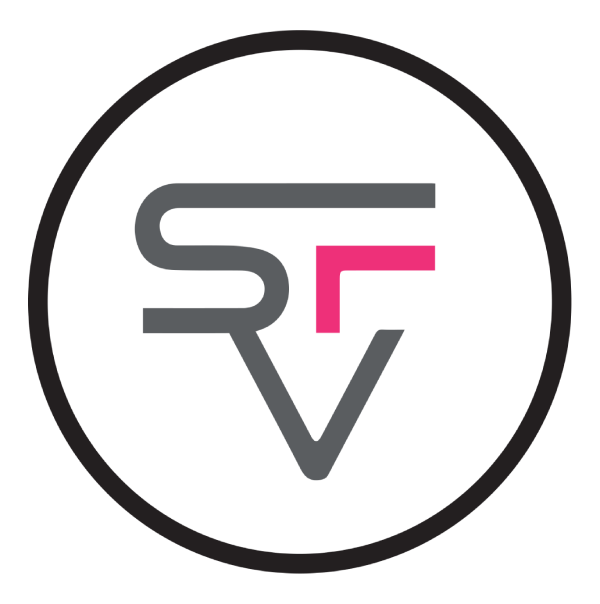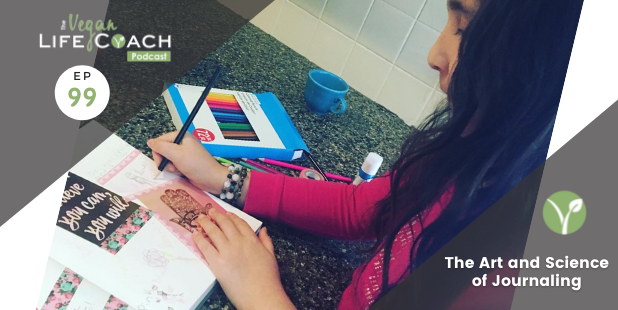Here’s a little trivia question for you… What do Albert Einstein, Lady Gaga, Leonardo DiVinci, and Frida Khalo have in common? They all benefited from a daily journaling practice. The fact is, I could fill this episode with a long list of recognizable people spanning centuries and in all walks of life who have implemented journaling into their daily routines.
LISTEN/WATCH
Subscribe: Apple Podcast | Stitcher | Spotify | YouTube
*Links mentioned in the episode are at the bottom of this page.
This powerful tool is something we often require for our clients. The scientific research to support journaling is extensive and compelling. It is a key strategy for personal development for a variety of reasons. Here’s what the research says:
- According to a study conducted at Harvard, implementing a practice of journaling can increase productivity. The reason behind this is that an experience itself is not where learning and growth occur. It is, rather, reflecting on the experience that actually produces the learning and growth.
- Another study conducted at Cambridge University found journaling improves overall well-being after traumatic and stressful events. Participants were asked to write about such events for 15–20 minutes resulted in improvements in both physical and psychological health.
- Other studies have found that journaling decreases emotional distress, improves sleep, helps us cope more effectively with daily stress, decreases intrusive and avoidant thoughts, and improves communication skills.
Clearly, journaling is one of the most effective acts of self-care. It allows us to make sense of the many inputs—emotional, external, psychological–that otherwise overwhelm us or cause us to shut down or lean into unhelpful distractions as a way to avoid. We can bring our problems and destructive thoughts and leave them in our journals.
On the flip side, our journals allow us to reflect on our joys and all that we are grateful for. It provides a place for us to record our inspiration, aspirations, and ideas. We can write for our future selves.
Entrepreneur Derek Sievers says of his journaling practice, “We so often make big decisions in life based on predictions of how we think we’ll feel in the future, or what we’ll want. Your past self is your best indicator of how you actually felt in similar situations. So it helps to have an accurate picture of your past. You can’t trust distant memories, but you can trust your daily diary. It’s the best indicator to your future self (and maybe descendants) of what was really going on in your life at this time. If you’re feeling you don’t have the time or it’s not interesting enough, remember: You’re doing this for your future self. Future you will want to look back at this time in your life, and find out what you were actually doing, day-to-day, and how you really felt back then. It will help you make better decisions.”
So, let’s talk about how you can implement and keep this powerful tool as part of your self-care ritual. This is really the Art of journaling and takes the science and turns it into something that works for you.
Something we often hear from our clients is that journaling is just intimidating. They don’t know how to start, and staring at the blank page is so uncomfortable. Other times, we’ve found that clients have let an established journaling habit go a bit stale. So… here are some strategies to help you get started and keep it going.
- If you hear no other tip from me today about journaling, hear this one: Forget all the rules about journaling and just do what works for you. There is no ideal time of day except what is ideal for you. Format doesn’t matter except what matters to you. How much time and space should you devote? You guessed it…whatever works for you. The point is, there is no right or wrong way to journal. How you journal is much less important than why you are doing it: To get something off your chest. To have quiet time with your thoughts. To clarify those thoughts. To separate the harmful from the insightful. To prepare for the day ahead and review the day that passed. To practice gratitude in a tangible way. And your WHY is personal and unique to you. So, I’ll say it again for the people in the back: There’s no right way or wrong way.
2. Start small. There’s no reason to set your sights on filling page after page of your journal each night. Your journaling practice can start with one line a day or even three minutes each morning. You could begin by simply listing three things you are most grateful for each night or a list of two priorities for the next day. By starting small, you won’t say no. It will be a task you will find exceedingly simple that you would feel silly not doing it, so you’ll do it. For example, you might start with one line per day for a week. You can write anything in that one line–something you’re excited about, how you are feeling, an event that took place, a mindset you want to attack, an idea you had, or an affirmation you want to implement. However, you decided to start, start so small that skipping it would be preposterous. You’ll know when you are ready for more depth and further commitment to this practice.
3. Journals can take many forms, and you may want to try a few. You can do a bullet-style journal or a place to put your sketches along with a few words. You might use your journal in the morning as a way to help you organize your priorities at night or in the evening to simply free yourself of the thoughts that are still cluttering your mind. If you need some further ideas on formats, I suggest using YouTube. Type in Journaling Formats, and you will find a wealth of specific ideas just for formats to use.
4. If you are having difficulty, try prompts or a guided journal. We‘ve provided you with a list of prompts in the show notes. Some of the topics are in-depth, some are light and silly. You can use any format that you are comfortable with. You might also find a guided journal is what you are looking for. You can find guided journals that focus on one specific topic, like wellness, anxiety, self-discovery, building habits, and the list goes on and on. One that I recommend that has a variety of formats is “Zen As F*ck” by Monica Sweeny. It is funny and a great way to help yourself not take life too seriously by letting go and embracing your inner rock star. Of course, as you can guess by the title, it also embraces swearing just a bit, too. I also recommend Start Where You Are by Meera Lee Patel. It’s full of inspirational quotes and prompts aimed at helping you be more mindful, reflect on your inner-most thoughts, and find joy in the small things. Prompts and guided journals aren’t just for those starting out in a journaling practice. These can also renew your journaling experience providing a way to dive deeper and explore yourself a little more and in new ways through this powerful tool.
Give yourself this powerful gift of self-care. Marcus Aurelius (Aw-REE-lee-ius), Roman Emperor and prolific journaler wrote in one of his journals, “People look for retreats for themselves in the country, by the coast, or in the hills “There is nowhere that a person can find a more peaceful and trouble-free retreat than in his own mind…So constantly give yourself this retreat, and renew yourself.”
The Daily Dosing of Self-Coaching Segment begins at 13:55.
CONNECT WITH US!
Interested in working with us? Email [email protected]
Check out our new FREE Master Class!
Take Our New Going Vegan Quiz HERE!
Grab the valuable gift we have for you HERE.
Have a question you’d like us to answer, or feedback you’d like to give us (we love hearing from you!)? Leave us a voice (or written) message HERE.
Interested in receiving a free coaching session to air on an upcoming episode? Apply HERE.
Hogs & Kisses Farm Sanctuary Website
The following two tabs change content below.

Ella Magers, MSW
Founder & CEO at Sexy Fit Vegan®
A passionate vegan for the last 28 years, Ella Magers, MSW is a leading voice for revolutionary transformation in the fitness industry. Ella connects people with the information, tools, support, and guidance they need to develop holistically healthy habits, claim mental and emotional well-being, and live more fulfilling and fiercely compassionate lives. Ella is a professional speaker, published author, and coach. She is the spirited host of the inspiring Rise & Thrive Podcast and the Vegan Life Coach Podcast, founder of Sexy Fit Vegan®, and creator of the 22Reboot total transformation system. As a plant-based athlete and former bodybuilding champion, Ella was recognized as one of the world's top personal trainers by bodybuilding.com and Shape Magazine. Having healed from her own struggles with disordered eating, Ella Magers shows people that there are alternatives to crash diets and excessive workout regimens, and how to align their lifestyle with true health by using compassion as their compass. Ella is on the founding board of Hogs & Kisses Farm Sanctuary, a 501(c)3 nonprofit with the mission of creating the best possible life for farm animals while inspiring compassion for all living beings.
Latest posts by Ella Magers, MSW (see all)
- When Crisis Calls: Finding Peace in Purposeful Action - January 10, 2025
- Fierce Compassion: Guide to Grieving, Celebrating, and Living Fully - January 7, 2025
- Your 30-Second Health Hack for the New Year: “Greens Insurance” - December 27, 2024
- Manifesting Your Best Year: The Art of Setting Soulful Intentions - December 27, 2024
- The Power of Collective Compassion: Prayers for Chef AJ - December 21, 2024

